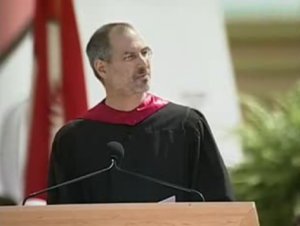What does an eco- lodge in the middle of the pristine Belizean rainforest have in common with Apple computers and Steve Jobs?
Philosophically, quite a bit as it turns out.
 Like us, Steve Jobs felt a responsibility towards environmental sustainability , and translated that responsibility into his company’s operations and practices. However, this was not something he publicised and, in our view, never received enough credit for. Also, and by his own admission, his Green commitment took time to develop.
Like us, Steve Jobs felt a responsibility towards environmental sustainability , and translated that responsibility into his company’s operations and practices. However, this was not something he publicised and, in our view, never received enough credit for. Also, and by his own admission, his Green commitment took time to develop.
At Chaa Creek, environmental awareness came early, but that’s to be expected when you’re living in the middle of such incredible natural beauty and see firsthand, and on a daily basis, what effect you are having on the environment.
We appreciate that for more urban and suburban based people, especially those immersed in technology as Steve Jobs was, environmental consciousness may take longer to develop, and when we view his commitment to the environment in that light, our appreciation grows.
Apple had weathered criticism from environmental groups and individuals, and to his credit Mr Jobs took the criticism on board and did something about it.
An early critic was VatorNews, who more recently said that that although ” Apple could have had greener policies from the beginning… the extent to which Apple literally cleaned up its act is what really commands respect.”
And the aptly named TreeHugger website praised Jobs for withdrawing Apple from the U.S. Chamber of Commerce because of the Chamber’s stance of climate change denial.
Mr Jobs himself had this to say in a letter to Apple staff:
“Apple is already a leader in innovation and engineering, and we are applying these same talents to become an environmental leader. Based on our tangible actions and results over time, hopefully our customers, employees, shareholders and professional colleagues will all feel proud of our ongoing efforts to become a greener Apple.”
True to form, Jobs steered Apple to a different environmental approach than that taken by other companies. In one of his first interviews after returning from leave, Jobs said that it was the total environmental impact of a business’ products, not just the emissions of factories, that counts, and that it was time to focus on a company’s results, not its lofty goals
For example, Apple CEO Tim Cook said that it was fine that many companies focused on corporate measures such as motion detectors to turn off lights when rooms were not being used, “But making products cleaner involves real engineering. It’s about innovating, and it’s hard work.”
That sounds like a Steve Jobs approach.
Since 2007, under Jobs’ guidance, Apple worked harder to minimize their environmental impact, with energy efficiency efforts running the gamut from manufacturing to retailing the end product. Part of Jobs’ legacy is that the company now focuses on reducing materials through innovative R&D and manufacturing practices
This has led to more compact and smarter designs, removing toxic chemicals from the manufacturing process, cutting the amount of energy used in transportation, using less packaging and implementing Energy Star products.
Apple’s also been using “renewable tapioca-based material” in its product packaging since 2007.
Efficient, edible packaging – now there’s an idea.
According to one industry insider, “These strides show that an industry leader can still be incredibly successful while making steps to help the environment.”
That’s music to our ears.
When Jobs took on recycling at Apple, he did so with his characteristic innovation, enthusiasm and success.
“You’ll remember that we measure our recycling performance according to a standard first proposed by Dell: compare the amount you collect to the total weight of the products you sold seven years earlier. In 2007, we achieved a recycling rate of 18.4%, which blew away our target of 13%. Our goal for 2010 was 28%, and we’ll beat that in 2008—two years ahead of schedule,” he enthused.
Later estimates of Apple’s recycling rate for 2008 were 32%.
At Chaa Creek we’ve become recycling fanatics and have reached the point where hardly anything at all is just “thrown away” because we realise that there is no “away” – everything goes somewhere and for us, out of sight is not out of mind.
Concerning Green criticism, Jobs did acknowledge that Apple could have done more to advertise and promote their commitment to Green strategies, but chalked that up to the way Apple worked, “You won’t see us out there saying what the PC is going to look like in 2016. We quietly go try to invent the PC for 2016.”
There’s a lesson in there for all of us – let the world know about your environmental ethos and efforts, and hopefully it will inspire others. At Chaa Creek we’ve come to realise that part of our responsibility is to spread that word that business success and sound environmental practices are not mutually exclusive.
Steve Jobs will always be remembered and revered for bringing the world that much closer through his genius and innovative products.
Here at Chaa Creek we certainly acknowledge that, but we want to ask people to take the time to consider what he has done for the environment and what he could have done in this area if he was only able to be among us for more time.
With all of the above in mind, we’d like to close with a Steve Job quote which, for us, sums up his philosophy beautifully and succinctly:
“Your time is limited, so don’t waste it living someone else’s life. Don’t be trapped by dogma-which is living with the results of other people’s thinking. Don’t let the noise of others’ opinions drown your own inner voice. And most important, have the courage to follow your heart and intuition. They somehow already know what you truly want to become. Everything else is secondary.”
Rest in Peace Steve Jobs – you made the world a better place.